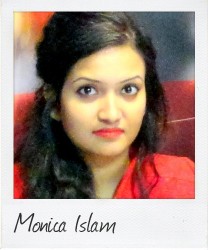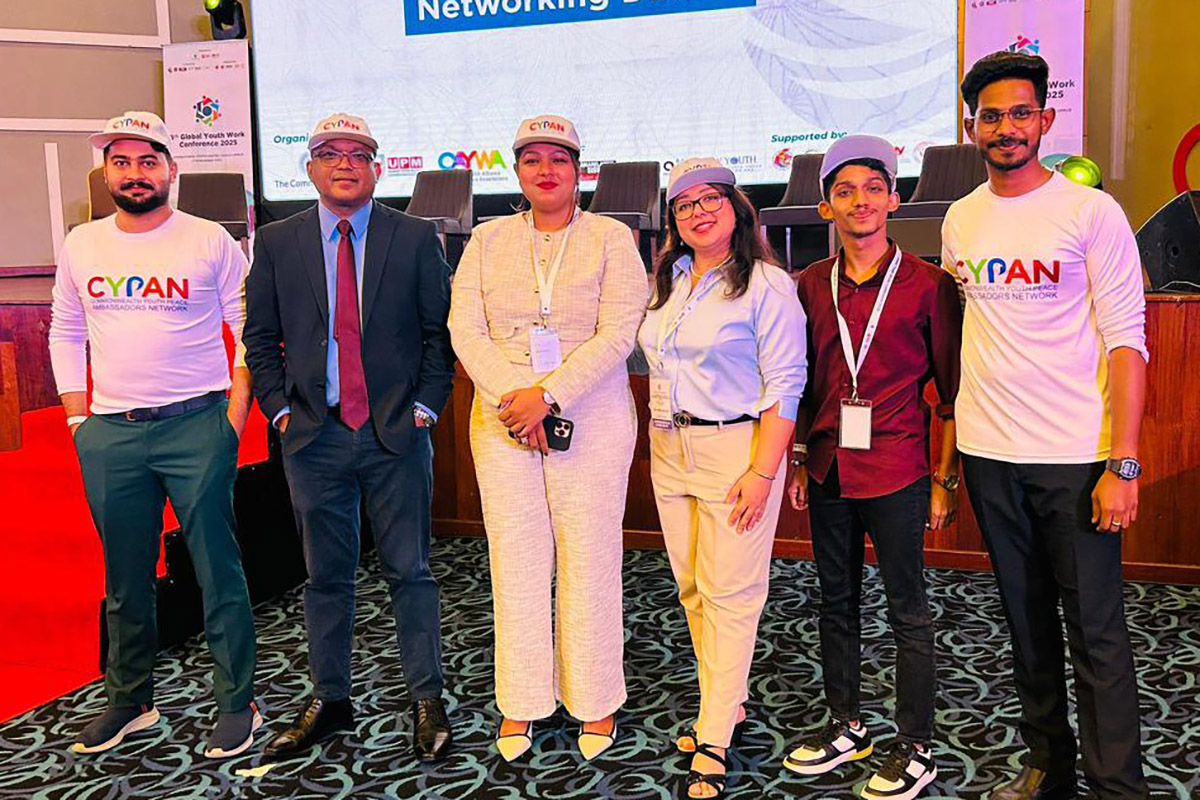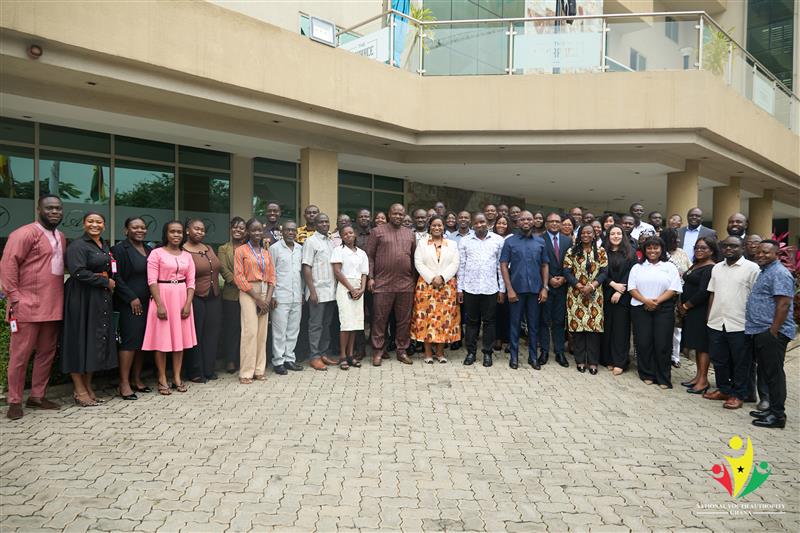“Youth and investment in women’s leadership”
November 17 Young people play an integral role in advancing development, democracy and peace. At the 10th Commonwealth Youth Forum in Malta, 21-25 November, over 400 youth leaders will discuss the challenges and opportunities facing young people, and devise relevant policy solutions through four main agendas – economic, environmental, social and political. The theme of the Forum is ‘Adding Global Value… #Whatnext?’. Monica Islam, 24, a Commonwealth Correspondent from Dhaka in Bangladesh examines issues around women and leadership.
Young people play an integral role in advancing development, democracy and peace. At the 10th Commonwealth Youth Forum in Malta, 21-25 November, over 400 youth leaders will discuss the challenges and opportunities facing young people, and devise relevant policy solutions through four main agendas – economic, environmental, social and political. The theme of the Forum is ‘Adding Global Value… #Whatnext?’. Monica Islam, 24, a Commonwealth Correspondent from Dhaka in Bangladesh examines issues around women and leadership.
“Hire based on merit, not gender.” The statement is often thrown at women’s rights activists by those who do not comprehend feminism or the social complexities that shape it.
My mind wanders back to my college time in Bangladesh, when one lecturer shared an anecdote about his female student receiving from her parents the fees for two courses every semester, while the student’s brother received the fees for four or more courses in the same time frame. Yet we emphasize the “merit” bit, completely overlooking lack of women’s access to education and other opportunities. Women are not less meritorious; often they are not given the chance to prove their “merit”, let alone demand rights such as equal pay.
It is said in research by Iowa State University in 2009 that women of colour are made to believe that they are intellectually inferior. They are also “assumed to be affirmative action hires and thus less qualified.” But it is not just the lack of opportunity that chokes diversity. Even when women from minority groups are provided with scholarships and other supports, they are expected to work much harder than their majority peers, and must demonstrate that they are worthy of all the assistance. The research states that “from whom much is given, much is expected.”
Low expectation of women’s intellectual capacity is not the only barrier. Leadership is often assumed as a male domain. How can we expect women to demonstrate “merit” when they are constantly pressured by society to be the primary or even the sole care-giver in a family? Muslim women in dogmatic societies are often taught that the home is a better place for them. This social pressure makes them vulnerable to under-performing, even when opportunities are made available to them. A lack of institutional or community support for women with families means that their progress or “merit” will be hindered.
The seeds of gender imbalance are planted at very early stages of the educational system. Take the example of schools where children are educated in a system where men rule women while the women rule children. Women hold fewer administrative positions, including in the recruitment team. The Women’s Refugee Commission Handbook notes that there are different types of education and classroom settings which could have an impact on the “merit” of students. In Bangladesh, the Rohingya community is not integrated into the mainstream. Under-represented groups of women have fewer role models and mentors who can commit to bringing these women out of this social quandary and to enable them to nurture and display their merit.
Improved access to education is not the panacea to women’s merit in the workplace. While women’s school education and college graduation rates are higher, their rate of representation in professions is low. If hiring needs to be done based on merit and not gender, we should expect the same rules for compensation. But that is not the case. An income gap of 21 per cent between men and women is a subtle impediment to women’s motivation and opportunity to show merit. On average, just 20 per cent of leaders are women; hence as an interviewee in the Irish Examiner relates: it is not a question of [women] not being taken seriously, but it is a case of [them] not being heard.
This is not to say that reservations or quota systems should be endorsed unequivocally, without exceptions. But saying that employers should hire based on merit and not gender is too simplistic. Merit is a distant dream for women when there is a lack of merit-enabling infrastructure for them worldwide. Some steps that can be taken to enhance the merit of women, or to level the playing field, are:
- Mentoring programs and networking opportunities: ChunriChoupaal, founded by a Pakistani woman named Iffat Gill, works to train women in ICT literacy, and to promote and connect women in technology.
- Lowering financial barriers to higher education for minority women: An initiative that youths in Commonwealth nations can emulate is the scholarship program for refugees, offered by Kiron University, an online university founded by a group of college students in Germany.
- Moving towards a truly genderless and meritorious society by accommodating the fact that workers, irrespective of their gender, can be parents too: Founded by a Bangladeshi woman named Ivy Huq Russell, com.bd is a technology-based company that seeks to empower women through information related to motherhood, and to build a community of women who are seeking reliable pregnancy-related information.
- Role of media in dismantling detrimental gender roles and stereotypes: We have heard of instances in which the media perpetuates misogyny, but we also need to take a look at opposite examples, such as Khabar Lahariya, an award-winning media company which is entirely led and managed by rural women from disadvantaged communities of India.
I appeal to the youths of Commonwealth nations to look at women’s merit from a broader perspective, and to invest in women’s leadership by implementing the aforementioned initiatives and others like them in their regions.
Photo credit: http://mrg.bz/HQPzWy
…………………………………………………………………………………………………………………
About me:
I aim to advance human rights and social justice through the media. I am a prolific reader, writer, and development-enthusiast.
I have attended several development-oriented conferences and media trainings at home and abroad, such as Global Social Business Summit (Austria), UNFPA Global Youth Forum (Indonesia), and Asia-Pacific Youth Parliament for Water (South Korea). I’d like to think of myself as a versatile person who is open to multiple intersecting possibilities.
…………………………………………………………………………………………………………………
Opinions expressed in this article are those of the author and do not necessarily represent the views of the Commonwealth Youth Programme. Articles are published in a spirit of dialogue, respect and understanding. If you disagree, why not submit a response?
To learn more about becoming a Commonwealth Correspondent please visit: http://www.yourcommonwealth.org/submit-articles/
…………………………………………………………………………………………………………………






